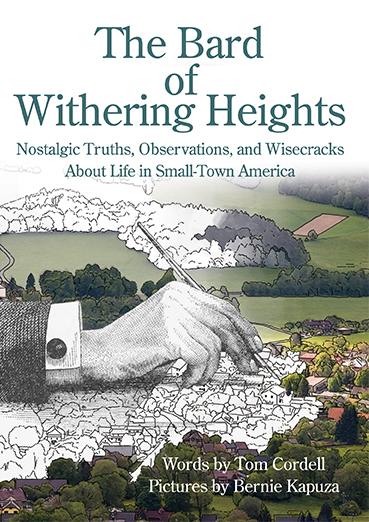
Live, Love, Laugh! That sage advice speaks to the universal appeal of humor writing. People love to laugh, and they admire those who make them laugh. While some writers are naturally funnier than others, there are ways everyone can inject humor into their writing.
WHERE DOES HUMOR COME FROM?
In thinking about what makes people laugh, we can distinguish between humor and comedy. Comedy is anything that makes people laugh quickly – a joke or a pie in the face. Humor is more subtle. It may elicit anything from a smile to a belly laugh, but unlike comedy humor contains an element of truth about human nature. Humor springs from the foibles and eccentricities of everyday people, and it often reveals some quirk or uncomfortable truth that people hate to admit. For example:
“Hardly anybody makes a long story short enough.”
The juxtaposition of odd characters in normal circumstances or normal characters in odd circumstances also creates humor. Consider this scenario:
“The Full Swanky Women’s Club of Withering Heights has cancelled the rest of its spring cotillion classes following the food fight at last night’s dance.”
The incongruity of a food fight at an etiquette class is enough to make most readers smile – especially those who had to suffer through cotillion as awkward teenagers!
Our interactions with family, friends, and colleagues are a great source of humor. People say and do funny things every day, and taking note of these things can help produce humor in our writing.
“Darla Chiffon has added her new husband to her list of things around the house that don’t work.”
Keep an electronic file of things that make you laugh for future reference. The file becomes a great source of inspiration for adding humor to a story.
WHY IS HUMOR IMPORTANT TO WRITERS?
We all need to laugh. In writing or in real life, laughter relieves tension and is a great form of therapy. By inserting humor into otherwise serious writing, the author provides a mental break for the reader—a kind of time-out that lets the reader take a breath before refocusing on more serious material or ideas. Humor gets readers to pay attention so the author can tell them something important that makes them laugh and think at the same time.
“One thing marriage teaches you is that being right is overrated.”
Humor can also help authors connect with readers on a personal level. It can bring back memories of people, places, and experiences the reader enjoyed. Humor can be a poignant thought that brings a smile rather than a laugh.
“A summer house is a perfect place to store childhood memories.”
YOU CAN LEARN TO BE HUMOROUS
While there is no secret formula for humor writing, there are skills that can be learned to help inject humor into a story. One way is to think of an ordinary idea or experience in a different context, adding a twist that surprises the reader and creates humor:
“Jake Clover finally started a savings plan today with six quarts of whiskey.”
In order to be funny, you need to free your mind from inhibitions and unlock your imagination. To get started, think of someone you know and then try to imagine them as someone completely different. Your mother as the queen of England? Your best friend as a movie star? Your overweight boss as a champion pole vaulter? See how many different identities you can create. Be ridiculous and absurd. Let one silly idea lead to another. This free thinking is an important part of the creative process that stimulates imagination, and it can bring new life to your writing. Simply put, to make writing funny, make it fun!
-Quotes in this article are from The Bard of Withering Heights, authored by Tom Cordell, with illustrations by Bernie Kapuza.
www.bardofwitheringheights.com
http://berniekapuzadesign.com

